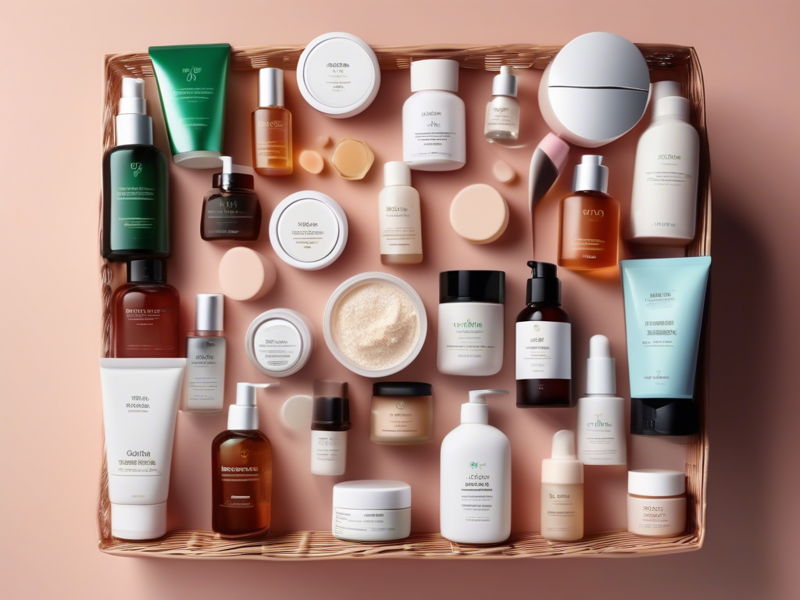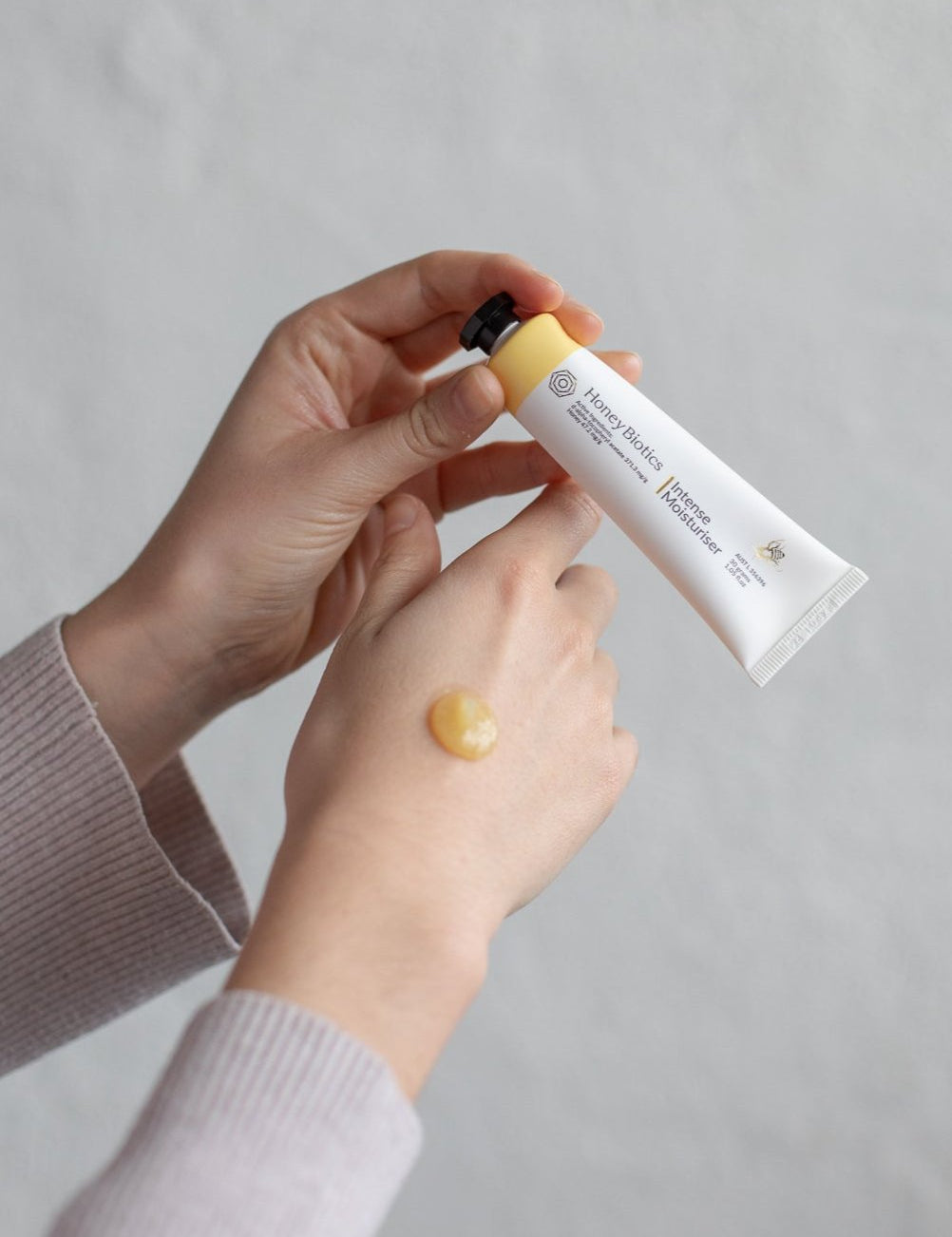Medicinal and Cosmetic Claims In Skincare
What You Should Know
Welcome skincare enthusiasts! In this article, we will delve into the fascinating and sometimes controversial world of cosmetic and medicinal claims in skincare. From the latest anti-aging breakthroughs to time-tested remedies, the skincare industry is teeming with products that promise to transform your skin and your life. But how can you separate the fact from the fiction?
Let's explore some key points and uncover the truth behind these claims.

Cosmetic claims are everywhere, from radiant glow to fine lines and wrinkle reduction, and they can be very enticing. These claims focus on beautifying or altering the appearance of the skin, and they are not required to undergo rigorous testing or clinical trials.
Conversely, Medicinal Claims are specific claims that require evidence and regulation. The evidence required can vary depending on the country the products are made/sold in.
Cosmetic Claims: All You Need to Know
Cosmetic product claims are statements made about the benefits or effects of a cosmetic product. They are important in marketing and selling cosmetic products, as they help to inform consumer decisions and differentiate products in the market.
Whilst its loosely regulated, it is still required that cosmetic claims are valid and legal, and that they accurately reflect the product's properties and efficacy.

The regulatory framework for cosmetic product claims varies by country, but in Australia, the Therapeutic Goods Administration (TGA) is responsible for ensuring the safety and proper labeling of therapeutic goods including skin care products. The TGA approves medicinal products or claims before they go to market, and it can take action against companies that make false or misleading claims.
Medicinal Claims In Skincare Products
Some products go the extra mile by offering benefits that extend beyond the typical cosmetic improvements. These products often include additional properties such as antiseptic and antibacterial benefits, or they may emphasize the product's ability to protect or enhance the skin's natural healing process. For instance, antiseptic and antibacterial products are specifically designed to prevent or reduce the risk of infection. These products are particularly useful for people with sensitive skin or those prone to skin irritations and breakouts. Antiseptic and antibacterial products work by inhibiting the growth of bacteria, viruses, and fungi, which can lead to various skin issues.
Products that focus on enhancing the skin's natural healing process.
These products often contain ingredients that promote collagen production, reduce inflammation, and soothe irritated skin. For example, aloe vera is a popular ingredient in many skincare products due to its ability to promote wound healing, reduce inflammation, and soothe sunburned skin. Other ingredients that promote skin healing include vitamin C, vitamin E, and Honey, especially Manuka Honey.

Another benefit that some skincare products offer is protection against environmental stressors such as pollution, UV rays, and free radicals. These products often contain antioxidants that help neutralize these stressors and prevent damage to the skin. Antioxidants work by stabilizing free radicals, which are unstable molecules that can damage cells and lead to premature aging. Common examples of antioxidant-rich skincare products include vitamin C serums, green tea-infused moisturizers, and sunscreens.
Regulation Regarding Medicinal and Cosmetic Claims
In the vast and complex world of consumer products, medicinal product claims require a higher level of scrutiny and regulation. This is primarily because such claims can significantly influence a consumer's decision-making process, especially when it comes to health-related concerns.
The regulatory framework for medicinal claims varies by country, but in Australia the Therapeutic Goods Administration (TGA) is responsible for ensuring the safety and proper labeling of cosmetics. The TGA does not approve cosmetic products or claims before they go to market, but it can take action against companies that make false or misleading claims.

Imagine walking into a store, seeking relief for a persistent headache. You come across a product that claims to provide instant relief. However, without proper regulation, this product could be making false medicinal claims, leading you to believe it will alleviate your pain when it may not. This scenario underscores the importance of regulating medicinal claims to protect consumers from potential deception and harm.
Medicinal claims require that the product, its ingredients and the labelling are all submitted to the national regulatory authority (TGA in Australia, FDA in USA) this prevents companies from making unsubstantiated claims. Should the product comply with the evidence and labeling requirement, its then permitted to make indications of the benefits of using the product. An example of a permitted indication might be 'enhances cell regeneration' or 'Alleviated symptoms of eczema'
Cosmetic claims still must meet certain common criteria to be considered valid and legal. First and foremost, they must be truthful and not misleading. This means that they must accurately reflect the product's properties and efficacy, and not overstate or exaggerate these benefits. Cosmetic claims don't have the same burden of evidence and are subject to far less regulation and scrutiny.
A good way for a consumer to evaluate the quality or truth of a cosmetic claim is to evaluate the claim itself and what it would require to prove it's truth value. For example, a claim that a product can reduce the appearance of fine lines and wrinkles may require more testing than a claim that a product has a pleasant scent. It is important for customers to carefully consider the evidence needed to support the claims and if the ingredients included in the product deliver the benefits as stated by the brand. When shopping for skincare products, googling the ingredients prior to purchase can save you lots of money
How Does a Product Qualify for a Specific Claim?
Whilst cosmetic products are required to undergo product testing and safety assessments. These tests are designed to ensure that the product is safe for use and that it complies with Good Manufacturing Processes (GMP). Whilst these tests are very important in how they relate more product safety and it's shelf life, they fall short when assessing the actual benefits of the products or the ingredients contained within.

In addition to product testing, companies are required to use clear and concise language when making cosmetic claims.
Vague or ambiguous language can be misleading and may lead to regulatory action - although, this is very loosely regulated which makes it important for customers to educate themselves.
The Intersection of Cosmetics and Medicinal Products
The line between cosmetics and medicine can sometimes be blurry, particularly when it comes to products that make healing or therapeutic claims. These products are often referred to as cosmeceuticals, and they occupy a regulatory gray area. While they are marketed as cosmetics, they may contain ingredients that have medicinal properties.
Cosmeceuticals are a blend of two words: "cosmetics" and "pharmaceuticals." They are designed to improve personal appearance, but they also claim to provide additional medical benefits. The ingredients in these products can include vitamins, antioxidants, and peptides, among other components.
These ingredients are believed to penetrate the skin more deeply than traditional cosmetics, providing a greater degree of benefit, but either the product or the ingredients lack the evidence required to make medicinal claims.
Understanding the Difference Between Cosmetic and Medicinal Claims
When looking for products, there are several key takeaways to keep in mind. Here are some things to consider:
1. **Quality Of The Ingredients**
The quality of a product is one of the most important factors to consider. Look for products that are well-made and durable. Check the materials used in the product and read reviews from other customers to get an idea of its longevity.
Takeaway: Always prioritize quality over price. A higher price tag often indicates better ingredients, which can save you money in the long run.
2. **Price**: While quality is important, it's also essential to consider the price. Look for products that offer the best value for your money. This doesn't always mean choosing the cheapest option. Instead, compare prices and ingredients to find the product that meets your needs at a price you're comfortable with.
Takeaway: Strike a balance between quality and price. Don't overspend, but also be wary of products that seem too cheap to be true.
3. **Reviews**: Reading reviews from other customers can provide valuable insights into a product's performance and reliability. Look for patterns in the reviews, such as consistent praise or complaints.
Takeaway: Use reviews as one tool among many to evaluate a product. Don't rely solely on them, but do consider what other customers have to say.
You can read reviews on Honey Biotics products here
4. **Brand**: The brand of a product can also be an essential factor. Established brands often have a reputation for quality and reliability, while lesser-known brands may be more hit or miss. However, don't discount newer or lesser-known brands outright. They may offer innovative products or features that established brands don't.
Takeaway: Consider the brand, but don't let it be the sole determining factor. Look for a balance between reputation and innovation.
5. **Returns and Warranties**: Finally, consider the return policy and warranty of the product. A good return policy allows you to try the product risk-free, while a warranty can provide peace of mind and protect your investment.
Takeaway: Look for products with generous return policies and warranties. This can help ensure that you're making a smart purchase.
The intersection of cosmetics and medicine has become a popular topic in the skincare industry, with many products claiming to have both cosmetic and medicinal benefits.
According to Dr. Leslie Baumann, a renowned dermatologist and the author of "The Skin Type Solution," this trend is not without merit. Dr. Baumann states, "There is a lot of overlap between cosmetics and medicine, especially in the field of skincare. Many ingredients that are used in cosmetics, such as retinoids, antioxidants, and anti-inflammatory agents, have been proven to have medicinal benefits." However, she also cautions that not all products that make cosmetic and medicinal claims in skincare are created equal. "The key is to look for products that contain ingredients that have been proven to work through rigorous scientific studies.'
Honey Biotics Intense Moisturiser Medicinal Claims
Honey Biotics' Intense Moisturiser has gained popularity in the skincare industry, with its effectiveness in treating skin conditions such as eczema, dermatitis and psoriasis. The moisturiser is formulated with a unique blend of natural ingredients including Manuka honey, known for its antibacterial, anti-inflammatory and antioxidant properties.
The entire list of ingredients, individually and as a whole have been proven to be effective in treating persistent skin conditions such as eczema, dermatitis and psoriasis as well as healing other skin issues such as cuts, burns, bites etc.

Further, Honey Biotics provides a 100% Satisfaction Guarantee, To try Honey Biotics Intense Moisturiser completely risk free click Here





